In a heated exchange on social media, Eloise Gonsalves, wife of St Vincent and the Grenadines Prime Minister Ralph Gonsalves, vehemently denied allegations of corruption surrounding the purchase of three apartment properties at the HDC’s Victoria Keyes housing development in Diego Martin. The accusations, initially raised by Housing Minister Anil Roberts, have sparked a political firestorm ahead of the November 25 general election. In a video posted on the Unity Labour Party’s (ULP) Facebook page on November 13, Eloise dismissed the claims as ‘political malice’ orchestrated by the opposition New Democratic Party (NDP). She emphasized that her family received no preferential treatment in the property transactions, attributing the purchases to the aftermath of Hurricane Maria, which destroyed her mother’s property in Trinidad. Roberts, however, countered her defense, questioning how Eloise’s daughter, Soleil, secured a rent-to-own property just two days after the April 28 general election, at a significantly reduced rent of $2,750 for an apartment valued at $1.3 million. Roberts challenged the Gonsalves family to provide evidence of their declared income and Board of Inland Revenue (BIR) file number, asserting his readiness to face any legal action with documented proof. The escalating dispute underscores the intense political rivalry as the ULP and NDP vie for electoral dominance.
博客
-

Hope calls for urgent fix of Windies’ powerplay failures: It’s been our Achilles heel
The West Indies’ T20 International series against New Zealand concluded on a disappointing note on November 13, 2025, as the visitors delivered their most lackluster performance in the decisive fifth match. Suffering an eight-wicket defeat, the Caribbean side handed the series victory to the Black Caps without much resistance. This loss underscored the persistent issues that have haunted the West Indies throughout the competition, particularly their top-order batting collapse, which proved fatal in the final game. Captain Shai Hope identified the team’s inability to adapt as the primary reason for their downfall. ‘The power play has been our Achilles heel for this series,’ Hope remarked. ‘As batters, we failed to assess and adapt as quickly as needed.’ Despite the criticism, Hope praised the lower-order batsmen for their resilience, acknowledging their efforts to salvage difficult situations. He emphasized the need for smarter, more assertive batting to disrupt the opposition’s bowlers. ‘We need to be more precise with our stroke play and not allow good bowlers to settle,’ he explained. Hope also highlighted the growing consistency of all-rounder Romario Shepherd, whose crucial contributions with the ball were instrumental in the team’s solitary series win. As the West Indies shift their focus to the upcoming ODI series, Hope stressed that immediate improvements are essential to turn their fortunes around.
-
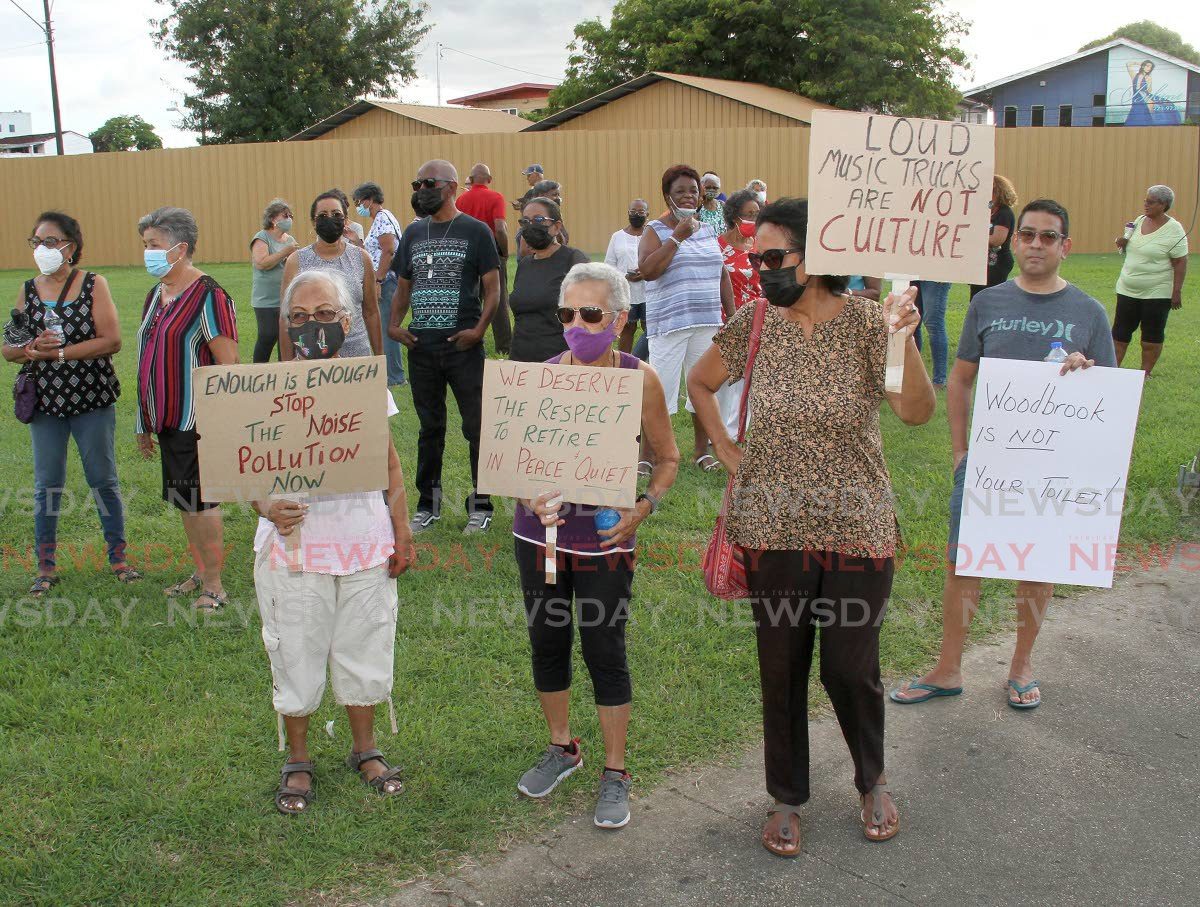
Woodbrook residents: Tackle Port of Spain noise levels too
Residents of Woodbrook in Port of Spain have voiced their support for Prime Minister Kamla Persad-Bissessar’s recent ban on fetes at the Brian Lara Cricket Academy, citing long-standing grievances over excessive noise pollution. Lynette Dolly, a prominent Woodbrook homeowner and head of the Woodbrook Resident’s Committee, highlighted the community’s frustration with unregulated noise from major venues like the QP Savannah, QP Oval, and Hasely Crawford Stadium. Speaking to Newsday on November 13, Dolly emphasized the need for balanced regulations that allow both entertainment and peace for residents. The Prime Minister’s announcement on November 12 included an immediate halt to fetes at the Brian Lara Cricket Academy and a pledge to introduce legislation by the end of 2025 to address noise pollution, fireworks, and designated quiet hours. Dolly noted that while some venues, like the Hasely Crawford Stadium, have made compromises to control noise, others, particularly the QP Savannah, continue to disrupt the community with loud music that can be heard across multiple neighborhoods. Residents also expressed concerns about music trucks that cause vibrations strong enough to shake homes and damage property. Dolly called for stricter enforcement of noise regulations to ensure that entertainment activities do not infringe on residents’ right to tranquility.
-
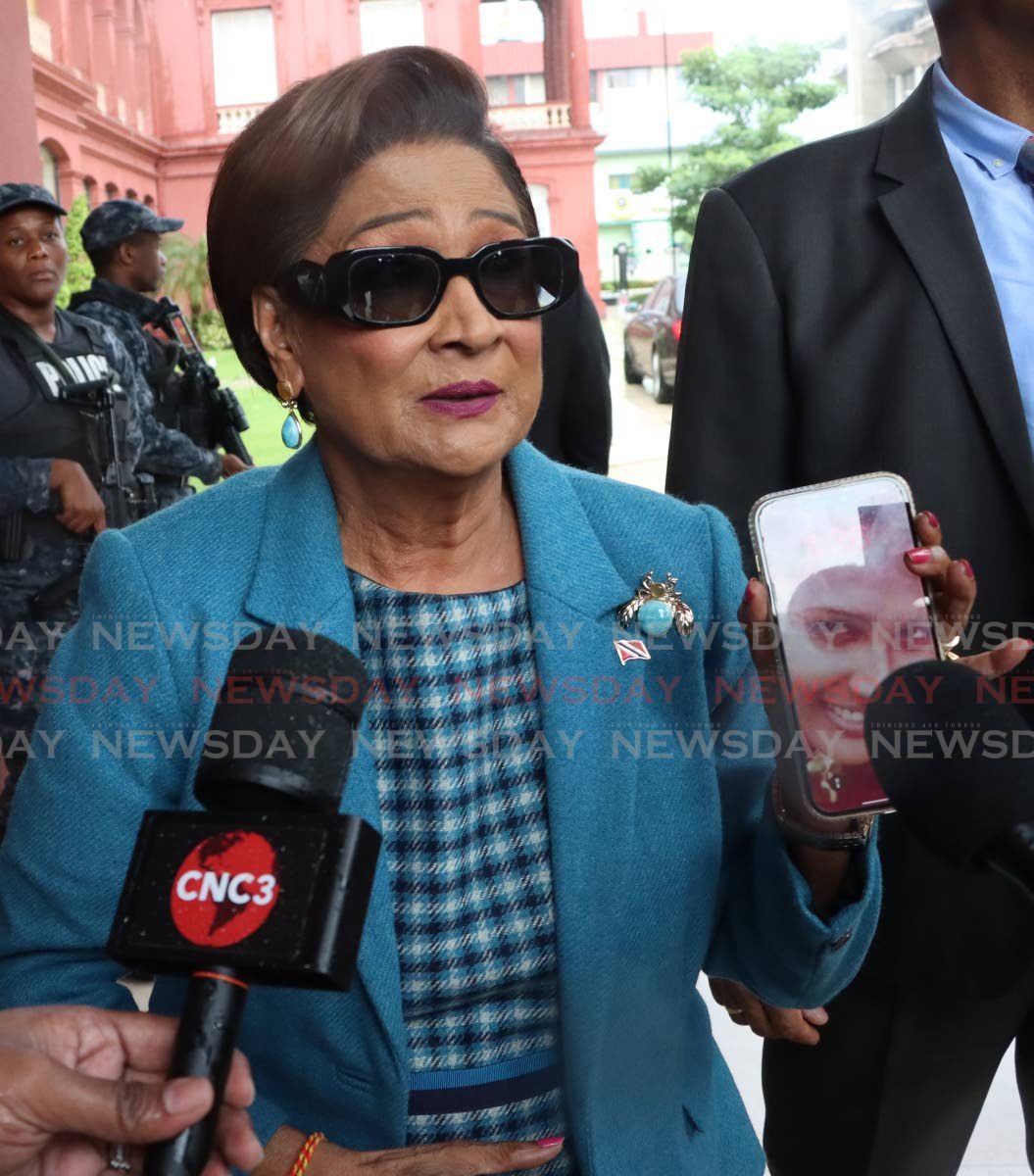
Bringing compassion back to Trinidad and Tobago
In a significant step toward safeguarding public welfare, Prime Minister Kamla Persad-Bissessar has pledged to introduce comprehensive fireworks legislation by the end of this year. This initiative, aimed at addressing noise pollution, has been widely praised as a compassionate and long-overdue measure. The proposed legislation seeks to protect all citizens, including vulnerable groups, pets, and wildlife, marking a pivotal moment in fostering a more considerate society.
For years, fete promoters and fireworks distributors have prioritized louder and more extravagant displays, often disregarding the adverse effects on communities. Despite ample opportunities to adopt responsible practices, their actions have consistently fallen short. This new legislation underscores the necessity of holding such entities accountable, ensuring that those who fail to self-regulate face appropriate consequences.
The Citizens Against Noise Pollution in TT have aptly highlighted the issue, stating, ‘Blasting music at 2 am is not culture – it’s noise pollution.’ This sentiment resonates with many who have long endured the disruptive impacts of unchecked noise and fireworks. As the nation awaits further details on the proposed measures, there is cautious optimism that this legislation will herald a new era of respect and responsibility.
-
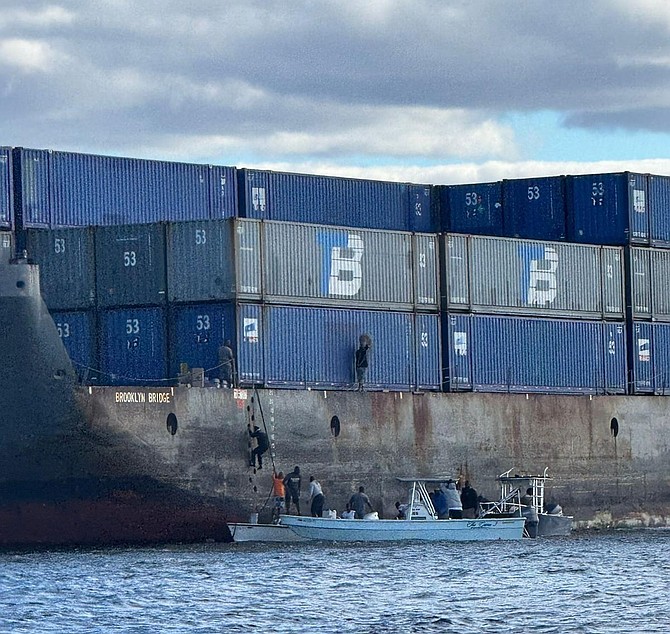
‘Christmas come early’
In a dramatic turn of events, a stranded container barge off the coast of North Abaco became the target of a brazen looting spree yesterday. The vessel, named *The Brooklyn Bridge*, had run aground near Nunjack Cay after its towline snapped during inclement weather. Scores of residents, arriving in small boats, swiftly descended upon the barge, hauling away goods ranging from toilet paper and dog food to appliances and furniture. The scene, captured in viral videos, was described as a “free-for-all” by one local, with some jokingly referring to it as an early Christmas for Abaco. Authorities, including the Defence Force and police, were deployed to secure the area, but not before significant quantities of cargo were removed. Stephen Wilson, North Abaco’s island administrator, condemned the theft but noted that police are unlikely to pursue the looters, as their actions inadvertently lightened the barge’s load. The Ministry of Transport confirmed that an assessment team has inspected the vessel and anticipates no environmental impact. Meanwhile, public reaction remains divided, with some condemning the looting and others defending it as a customary practice in the region. The barge, reportedly carrying millions of dollars’ worth of supplies, awaits a replacement tug for recovery.
-

‘Exterminate cane toads to protect your family and pets’
The Bahamas is grappling with the escalating presence of cane toads, an invasive species that has firmly established itself in the nation’s ecosystem. Local experts warn that the toads, which have been increasingly spotted across New Providence, pose significant risks to pets, wildlife, and even humans. Deon Gibson, general manager of the Bahamas Agriculture and Marine Science Institute (BAMSI), noted a sharp rise in cane toad sightings in both western and eastern parts of the island. He urged residents to euthanize the toads by sealing them in bags and freezing them or using long tools like pitchforks to avoid direct contact. Dr. Ancilleno Davis, an assistant professor at the University of The Bahamas, emphasized that eradication is no longer feasible. ‘It is impossible to kill off all the cane toads,’ he stated. ‘We must learn to coexist with them and educate communities, especially children and pet owners.’ The toads’ rapid reproduction and lack of natural predators ensure their long-term survival. A single female can lay hundreds of thousands of eggs, and mature toads face minimal threats. However, their toxins are deadly to local wildlife and can cause severe reactions in humans, including nausea, vomiting, and even cardiac issues. Dr. Davis highlighted the ecological imbalance caused by the toads, which prey on native species and poison predators. ‘A stray dog or cat might think it’s an easy meal, but they will die,’ he explained. The surge in reported sightings is partly attributed to increased public awareness and the rapid dissemination of information online. Cane toads were first detected in western New Providence in 2013, and since then, multiple alerts and identification guides have been issued to combat their spread. Despite these efforts, the species’ impact on the Bahamas’ ecosystem and public safety remains a pressing concern.
-

China donates $85k for Hurricane Melissa relief
In a significant move to bolster disaster recovery efforts, China has pledged additional aid to The Bahamas following the devastation caused by Hurricane Melissa. The Chinese government has approved approximately $84,665 through the China-Caribbean Disaster Prevention and Mitigation Fund, underscoring its commitment to supporting the Caribbean nation in times of crisis. This latest contribution comes in response to a diplomatic note from the Bahamian Ministry of Foreign Affairs, which detailed the extensive damage inflicted by the hurricane. Chinese Ambassador Yan Jiarong highlighted China’s ongoing support, recalling her visit to a restoration village in Grand Bahama last November, where she delivered aid following Hurricane Milton. She emphasized that the lingering effects of Hurricane Dorian, which struck five years ago, are still palpable. Over the past three years, China has donated $140,000 to The Bahamas through the same fund, along with emergency supplies and over $600,000 in cash and material aid post-Dorian. Beyond financial assistance, China has organized workshops and seminars for Bahamian professionals to enhance disaster response and climate adaptation capabilities. The Chinese government expressed its deep understanding of the unique vulnerabilities faced by small island states like The Bahamas in the era of climate change. Reiterating its commitment to global climate governance, China emphasized the importance of translating climate commitments into action and fostering international cooperation. The statement concluded with a reaffirmation of China’s unwavering support for The Bahamas, encapsulated in the proverb, ‘A friend in need is a friend indeed.’
-
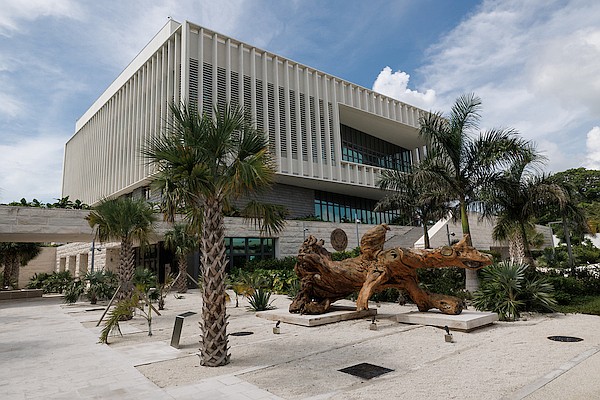
Health conditions will play part in US visa application process
A recent immigration directive by the Trump Administration has raised concerns among individuals applying for U.S. visas, particularly immigrant visas. The U.S. State Department issued a cable instructing embassy and consular officers to evaluate applicants’ health conditions more rigorously. This includes assessing whether applicants with chronic illnesses such as cardiovascular, respiratory, neurological, and metabolic diseases, cancers, diabetes, and mental health disorders could incur substantial medical costs in the U.S. While health assessments have always been part of the visa process, the new directive expands the list of medical conditions under scrutiny. The heightened focus primarily targets immigrant visas, not short-term B-2 visitor visas for individuals who can fund their own medical treatment and intend to return home. Visa officers must also determine if applicants have sufficient financial resources to cover their medical needs without relying on U.S. government assistance. Leonara Coakley, a visa consultant, noted that while clients have not directly questioned her about the directive, business has slowed significantly since September due to widespread fear and confusion about immigration policies. She highlighted a case where a client with a heart condition was denied a B-2 visa extension despite ongoing medical treatment in the U.S. Coakley emphasized that fear, fueled by news reports on immigration enforcement, is deterring potential applicants. She explained that visa denials often depend on the officer’s judgment, and applicants can reapply with additional evidence. The directive also includes conditions like obesity, which are linked to chronic illnesses, as factors in assessing whether an applicant might become a public charge. State Department spokesperson Tommy Pigott stated that the Trump Administration prioritizes the interests of American taxpayers by enforcing immigration policies that prevent the system from becoming a financial burden. The Department has historically had the authority to deny visas based on the likelihood of applicants becoming public charges.
-
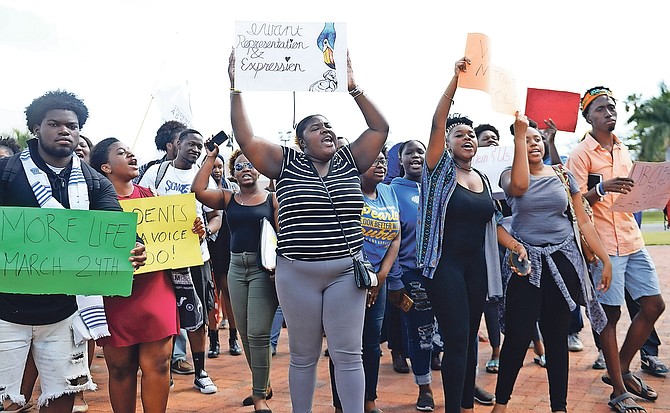
UB students ordered to sit exams in rooms deemed unusable due to mould
Growing concerns over mould contamination in multiple classroom blocks at the University of The Bahamas have reached a critical point this week. Students have reported being instructed to sit their end-of-semester exams in a room previously deemed unsafe due to mould issues. A social media post from a student revealed that a mathematics class had been moved online for weeks because of mould in the assigned classroom, only for the final exam to be scheduled in the same space, with masks required as a precaution. Dr. Anastasia Brown, Acting President of the Union of Tertiary Educators of The Bahamas, confirmed that mould complaints extend beyond the maths building to other facilities, including the CATS building. She attributed the problem to long-standing maintenance challenges on the Oakes Field campus, exacerbated by the university’s location on a former pond, which necessitates regular upkeep. Dr. Brown also highlighted issues with air-conditioning vents and filters, which are not being replaced on schedule due to resource constraints. She emphasized the impact of poor air quality on faculty, staff, and students, stating, ‘If you hear my voice, I can barely breathe.’ Despite promises from university officials and the government to address the issues, Dr. Brown expressed frustration over the lack of progress. Edwin Waldron, President of the Student Government Association, acknowledged earlier complaints about mould and confirmed that the university had allocated funds for repairs. However, he was unaware of the specific exam-related complaint and pledged to investigate. Both Dr. Brown and Mr. Waldron stressed the importance of resolving maintenance issues, particularly as the university prepares for accreditation exercises. Dr. Brown urged the institution to prioritize safety, stating, ‘We understand we want to do accreditation, but you have to make sure that we are around to enjoy accreditation.’ University officials did not respond to requests for comment by press time.
-
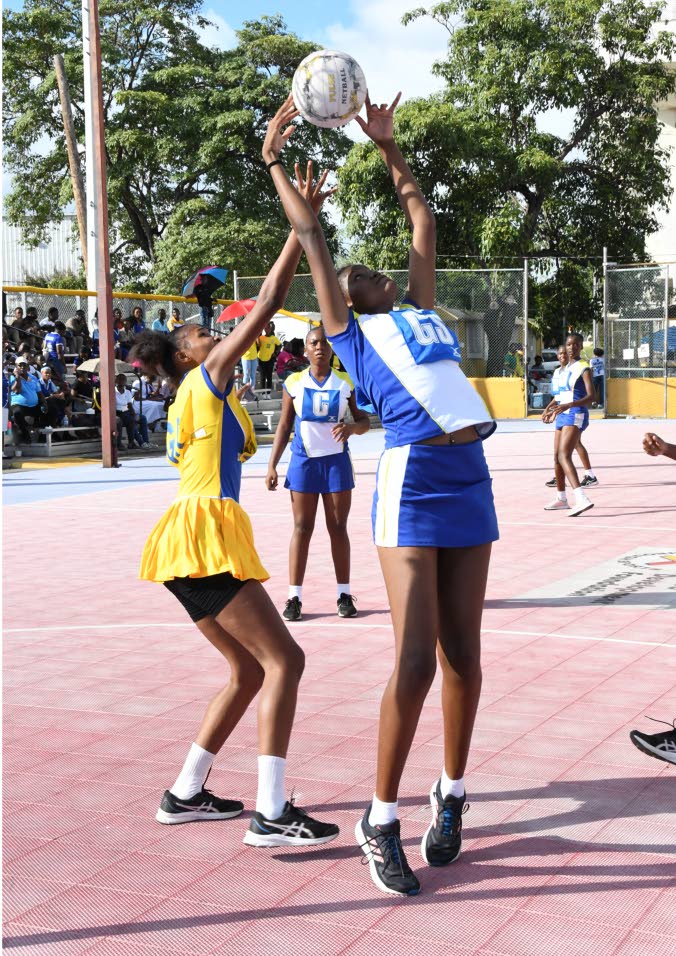
ISSA sets netball deadline for resumption
Schools in Jamaica have until 2:00 PM on Friday to confirm their participation in the Inter-Secondary Schools Sports Association (ISSA) Rural Area schoolgirls’ netball competition, which was disrupted by Hurricane Melissa. The hurricane, which struck on October 28, led to the suspension of various sports, including netball, football, and basketball. Despite efforts to restart the netball competition, 38 out of 57 participating schools had not confirmed their willingness to resume by Thursday afternoon. ISSA, the governing body for high school sports, issued a memo on Thursday listing schools from at least seven parishes that had yet to respond. Notably, most of the unresponsive schools are from western Jamaica, an area severely impacted by the hurricane. In contrast, the schoolboys’ football competitions, the daCosta Cup and Manning Cup, are set to resume later this month after consultations with stakeholders. These football competitions, which began in early September, had progressed to the round of 16, with participating schools expressing readiness to continue. The netball competition, divided into under-16 and under-19 age groups, faces uncertainty as schools from parishes such as St James, Hanover, Trelawny, St Elizabeth, Manchester, St Ann, St Mary, St Catherine, and Portland remain undecided.
